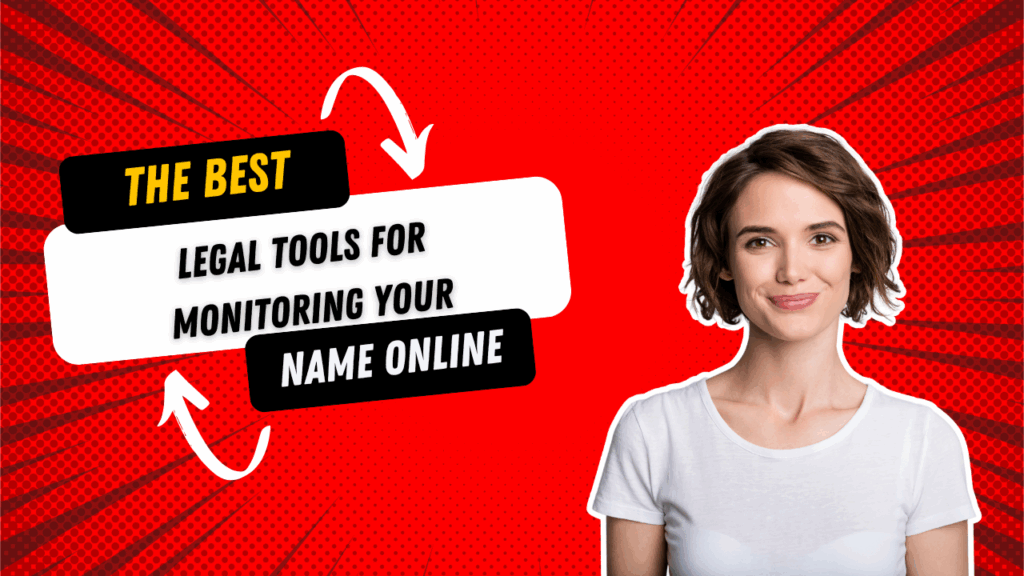Your name is your brand. Whether you’re a lawyer, doctor, or just someone applying for a new job, what shows up when someone Googles you matters. If outdated or harmful info appears, it can cost you opportunities. So how do you stay on top of what’s out there?
Let’s break down the best legal tools to help you keep track of your name online, know when trouble shows up, and take action fast.
Dig Deeper: How to Remove Court Records from Google Search
Why Online Monitoring Matters
If you think reputation issues only affect celebrities or CEOs, think again.
A 2024 Harris Poll found that 77% of employers check online info before making a hiring decision. Another 50% of people say they’ve decided not to do business with someone after Googling them. That includes service pros, freelancers, and even renters.
The internet doesn’t forget. And court records, mugshots, and old news stories can stick around even if charges were dropped or sealed. That’s where legal monitoring tools come in.
What Legal Monitoring Tools Actually Do
Legal monitoring tools scan the web for mentions of your name across court databases, mugshot websites, background check companies, and even news outlets. Some go further and track new uploads or site changes.
The best tools do three things:
- Track your name across search engines.
- Alert you when something new shows up.
- Give you a path to remove or suppress harmful content.
Let’s look at which ones are worth your time.
Google Alerts (Good, But Basic)
Google Alerts is free and easy. You type in your name, and Google emails you when it finds new results.
It’s useful, but very limited. It only catches some web pages and skips many databases and mugshot sites. It also doesn’t show historical mentions or give you removal options.
Still, it’s a decent starting point if you’ve never monitored your name before.
Pro Tip:
Use quotes around your name (“John A. Smith”) and add words like “arrest,” “court,” or your state to filter results.
BeenVerified and TruthFinder
These are consumer background check services that also offer alerts when new info is added to your profile.
They scan arrest records, bankruptcies, civil cases, and social profiles. But these are not legal tools. They won’t remove anything or give legal help. Also, they sell your data as part of their service.
Use them to see what others might find, but don’t rely on them alone.
Erase and Guaranteed Removals
Both tools monitor your name and provide step-by-step instructions to remove it from data broker sites. They can also remove mugshot links from smaller websites and track what changes.
Erase is good for long-term cleanup and runs in the background. Guaranteed Removals is better for review generation and business listings.
Neither one guarantees removals from government or court sites, but they’re great for scrubbing your name from commercial sites.
Use a Reputation Management Service
If you’re serious about protecting your online name, hiring a reputation management service is often the best option. They combine monitoring with removals, legal requests, and court order enforcement.
They can also escalate issues with stubborn sites that ignore takedown requests. Some offer monthly reports, attorney letters, and personal removal strategies. That’s a big step up from just getting alerts.
These services are not free, but they can save you time, stress, and missed opportunities.
Real Example:
One client we spoke to had an old court case dismissed in 2015. The court record was sealed, but the case still showed up on four mugshot sites and two background check databases. They tried calling the sites and submitting forms on their own. Nothing worked.
Once they hired a reputation management service, the content was removed within two weeks.
Public Court Databases (Yes, You Can Monitor Yourself)
Each state has different court record systems. Some are public, searchable, and free. Others charge per document.
You can check your name in these systems regularly to see what’s still visible. Look at county and state-level court websites. Pay attention to civil, criminal, and small claims records.
If something shows up that should be sealed or expunged, contact the clerk or request a correction.
Bonus:
Some court portals allow you to sign up for alerts on your own cases, which is helpful if you’ve recently filed for sealing or expungement.
Legal Takedown Requests and Monitoring Tools
Some monitoring tools now offer built-in legal features. For example, services may include:
- Automatic Lumen submissions
- Google legal removal forms
- Court order filing
- DMCA notices (if the content violates copyright)
These tools don’t replace a lawyer, but they streamline the process. One reference to the following: reputation management service.
Best Practices for Staying Ahead
If you want to stay ahead of problems, here’s what you can do today:
- Set up Google Alerts for your name, aliases, and city
- Search your name regularly on Google, Bing, and Yahoo
- Review background check sites like Whitepages, Spokeo, and MyLife
- Use services that scan public records weekly or monthly
- Keep a personal log of any content you request to remove
If you find something harmful, act quickly. Some sites take 24 hours to remove content. Others drag their feet unless you escalate.
Final Thoughts
Your online name is like your credit report. If you don’t monitor it, someone else will—and it may cost you.
Legal tools for name monitoring can’t erase everything, but they can give you control and peace of mind. Whether you go the DIY route or hire a pro, staying alert is step one to protecting your future.
If you’re dealing with court records, mugshots, or old arrest info, don’t wait for it to disappear. Use every tool available to keep your name clean and your reputation strong.
Need help? Top Shelf Reputation specializes in managing court records online, even when they can’t be fully removed. Contact us today to take back control of your online image.

